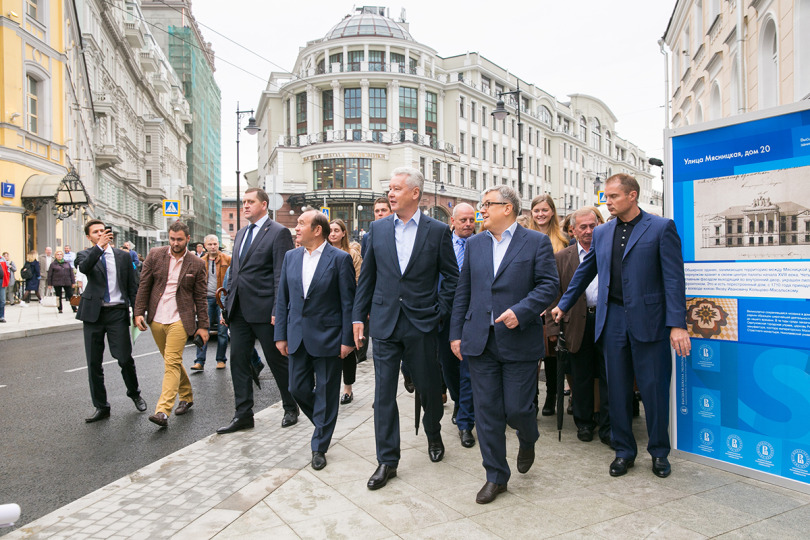43%
of Russians working in the public sector have a higher education. Among those working for the private sector, only 27.3% hold a diploma of higher education.
How We Remember the War: Politics of Memory Analyzed by Russian and German Scholars
In 2015, the world celebrates the 70th anniversary of the end of the Second World War, an event that is a particularly important part of Russian and German history. Scholars from the two countries were the authors of the latest edition of the Journal of Social Policy Studies.

HSE Students Want to Install a Personalized Bench and Organize a Charity Fair on Myasnitskaya
On September 2nd, 2015, Myasnitskaya street, which hosts several HSE buildings, was officially opened after reconstruction. Moscow Mayor Sergey Sobyanin inspected the renewed street and talked to HSE students.
Student Dropout Process Mimics a Trial
Decisions relating to student dropout often resemble a trial with students as defendants and teachers as prosecutors and judges. This approach can create barriers between students and staff and raise the issue of the university's mission, according to Ivan Gruzdev, Evgeny Terentiev and Elena Gorbunova of the HSE’s Internal Monitoring Center.
From Ancient Inscriptions to Blogs: Different Disciplines’ View on Ego Texts
HSE has held its post-graduate humanities summer school 'History in the First Person: From Antiquity to Our Time'. The summer school was dedicated to texts written or recorded in the first person, as well as to various methods for analysing them. The school’s organizers and participants spoke with the HSE news service about what ego texts are, how representatives of different disciplines work with them, and how French methodology differs from Russian.
HSE and Dynamo to Support Student Sports Initiatives
The Higher School of Economics and the Russian hockey team Dynamo Moscow have agreed to combine forces to help students lead a healthy lifestyle and develop student sports initiatives.
5,856
first-year undergraduates will begin their studies at all HSE campuses today. This is 1,115 more people than last year.
HSE Sees 60% Increase in Foreign Student Enrolment
Admissions in 2015 was quite successful for the Higher School of Economics – perhaps the most successful in the history of the university – according to a statement made by HSE First Vice-Rector Vadim Radaev on August 31 at a press conference on student admissions at Moscow universities.
HSE Launches First Online Courses on Russia’s National Open Education Platform
Starting today, students from around the world will be able to register for classes taught in Russian by renowned teachers from the Higher School of Economics on Russia's National Open Education Platform. All lectures meet the regulatory requirements set for educational disciplines in Russia.
'When 'Foreign' Is Transformed into 'International', Everything Is More Exciting and Fun'
Seongsoo Choi, PhD in sociology and Junior Fellow at the Center for Research on Inequalities and the Life Course (CIQLE), Yale University, will begin teaching in his new role as Assistant Professor of Sociology at the HSE St. Petersburg campus in September. He spoke to the HSE English News service about his research in social inequality, about the work he will be doing at HSE St Petersburg and about being a part of the international academic community.

